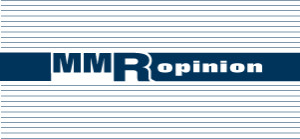#supplychain … No surprise this topic is trending in a big way. Or that it’s time to rethink how retailers and manufacturers bring their products to market. When I picture every “strategy on a page” I’ve seen over the years, supply chain has always been the foundation — and almost always taken for granted. It’s been like the umpire at a baseball game — you only notice him if a bad call is made. Reliable, cost-effective — who could argue with the “just in time” supply approach back then? But we’re in the new normal now, and it’s painfully apparent the status quo is no longer working.
 It’s critical to start thinking of supply chain in a strategic, innovative way — and in the same breath (if not prior to) as product and pricing. Our focus has to be on transforming the foundation of what we do to meet consumers’ ever-rising expectations — no, demands — in terms of omnichannel fulfillment and customer experience. We must be agile and nimble enough to deliver on the continually emerging, fluctuating needs of different consumer groups — with technology capable of fast changeovers accommodating a range of product specs and price pack architecture. And we’ve got to have real-time data for improved demand forecasting, with end-to-end transparency and risk monitoring to avoid shortages and overstocks and ensure business continuity.
It’s critical to start thinking of supply chain in a strategic, innovative way — and in the same breath (if not prior to) as product and pricing. Our focus has to be on transforming the foundation of what we do to meet consumers’ ever-rising expectations — no, demands — in terms of omnichannel fulfillment and customer experience. We must be agile and nimble enough to deliver on the continually emerging, fluctuating needs of different consumer groups — with technology capable of fast changeovers accommodating a range of product specs and price pack architecture. And we’ve got to have real-time data for improved demand forecasting, with end-to-end transparency and risk monitoring to avoid shortages and overstocks and ensure business continuity.
We all know that in-stock is the single most important ingredient in beating sales plan, so why are we allowing store shelves to be barren? I don’t see many companies going into DEFCON 1 trying to reinvent a system that is clearly in need of an overhaul. Need some motivation? Look at the OTIF (on time in full) fines being levied by retailers that are, at best, eating into precious, sales-driving trade dollars and at worst, profoundly eroding our collective bottom lines.
It reminds me of many conversations I had about Amazon in its early days. The true visionaries could see what was coming and changed their business models in a meaningful way. Others chose to bury their heads in the sand. The companies that made the tough adaptive choices early are reaping the benefits in a big way, while others … well, they are gone or now making much more costly investments to hurry up and get there.
Supply chain today is on a parallel path. I see many companies handicapped by outdated processes and thinking that doesn’t allow them to effectively manage demand and supply volatility. Still, others are moving forward. Take Target, for example. Target recently announced steps to ensure they deliver to their “guests” while driving growth. The company is adding incremental holding capacity near U.S. ports to add flexibility and speed in the portions of the supply chain most affected by external volatility; pricing actions to address the impact of high transportation and fuel costs; working with suppliers to shorten supply chain distances and lead times, and building additional capacity for further growth by adding distribution centers.
Ultimately, optimal supply chain solutions will be determined by a true collaboration between raw material factories, manufacturing, logistics providers, warehousers, retailers and every touchpoint in between. Don’t focus on plugging leaky buckets in existing systems. Instead, ask, “If we were one company, what would we do differently?” Start with your medium- and long-term vision to determine the best path forward to achieve that vision through scalable infrastructure, technology, software and relationships. Yes, look at efficiencies and cost management but also look to identify opportunities to create value. And remember: The current situation and outlook for supply chain require that we get uncomfortable, creative and challenge the status quo.
An agile and resilient supply chain is the lynch pin to greater sales and greater profitability, and our legacy system has proven to be very fragile. Now is the time to stop lamenting the current situation and take action. This industry has never seen an obstacle that it has been unable to navigate through the best and brightest minds, unleashing the power of inventiveness and driving focused resources of each of the companies we lead. I ask you, what are you prepared to do about it?
Jason Reiser is president of Market Performance Group, a CPG/retail consultancy and managed sales services firm. More information about the company can be found on the MPG website: marketperformancegroup.com.




You must be logged in to post a comment Login